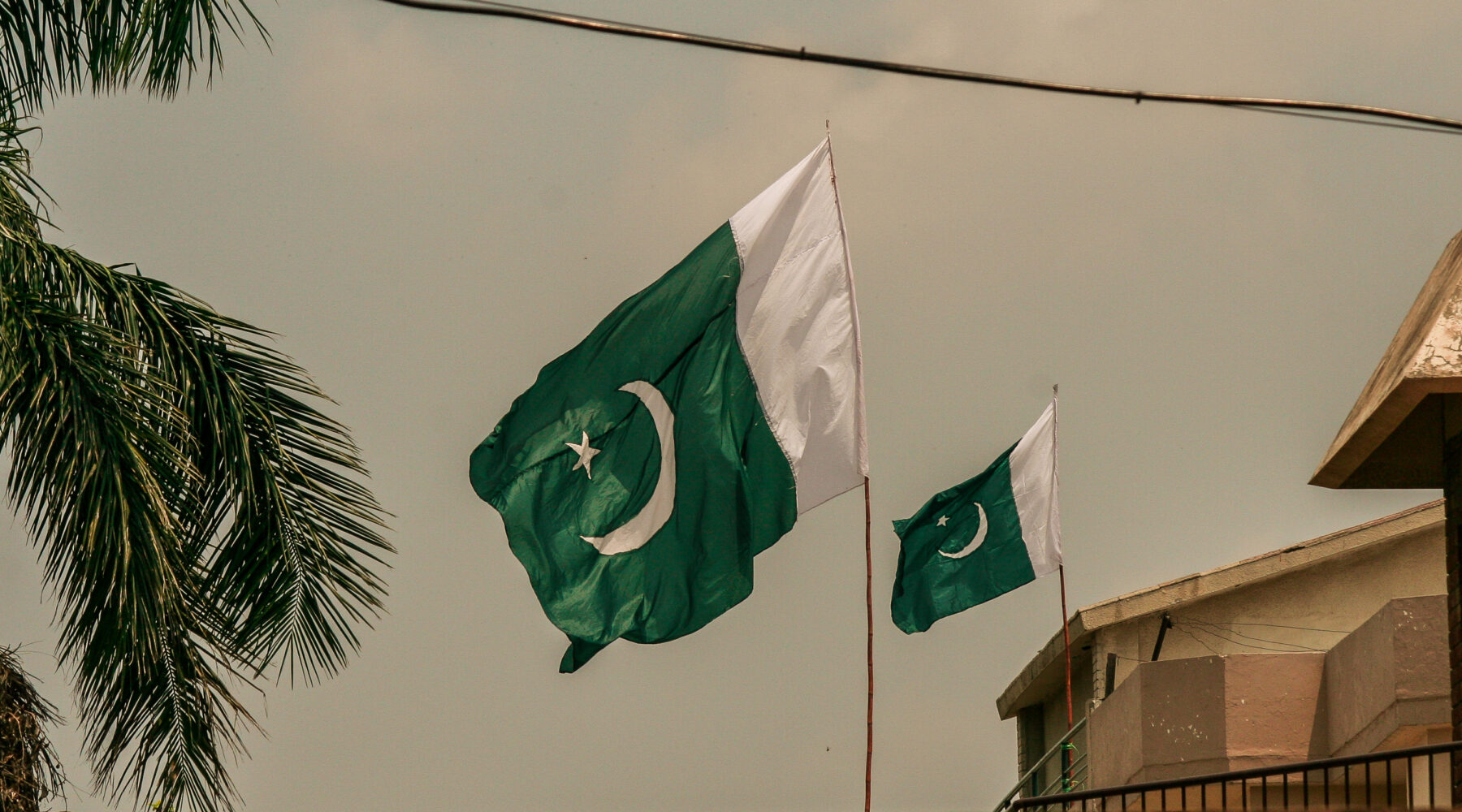


 Kay Windle is an activist and intern at deMens.nu. She has an academic background in philosophy and human rights – Essex University and is an ambassador for Just Like Us (UK NGO).
Kay Windle is an activist and intern at deMens.nu. She has an academic background in philosophy and human rights – Essex University and is an ambassador for Just Like Us (UK NGO).
The recent EU Generalised Scheme of Preferences + report (EU GSP+) has finally brought to light the number of people dying at the hands of the government in Pakistan, simply for being atheist or against mainstream religion. This is an ongoing epidemic that cannot be ignored, as witnessed in the recent September trial where four young men were given death sentences for sharing ‘blasphemous’ content on social media.[1] It only leaves us with the question: Who’s next?
The GSP+ programme is an EU incentive that provides vulnerable low-income countries with bilateral development assistance and duty suspension on exports.[2] The programme currently has eight recipients including Pakistan, Bolivia, Cape Verde and the Philippines.[3] The original EU GSP was introduced in 1971 to simultaneously reduce poverty and increase good governance practices.[4] By providing the programme recipients with a platform to launch from, it offers the chance to obtain a preferential agreement for market access or to leave the status of a low-income country.[5] The caveat is that the beneficiary countries must follow UN conventions on human, labor, and environmental rights to receive aid.
As a result of this, a joint report is published by the EU Parliament and the Council every two years to monitor the progress and implementation of these conditions. As Pakistan received over €600 million in development assistance alone, the need to monitor the nations’ actions and developments is evident in the past ten years of the program.[6] However, the most recent GSP+ report (December 2023) explicitly stated that freedom of religion and belief continues to be repeatedly violated and demanded that the government “take determined actions against the misuse of blasphemy laws”. [7] Furthermore, the government has failed to take action to prevent lynch mobbing of religious minorities. From 2020 to 2021 alone, the government reported over 650 cases of religious offence. Whilst the scope of the death penalties use has been limited, it has not been reduced in accordance with “blasphemy” violations.[8]
The reason for this becomes clearer when we look at the nation’s identity. Pakistan has a state religion of Islam and subsequently only Muslims have the right to hold positions of governmental power, such as the President and Prime Minister.[9] Even members of parliament, when giving their oath, have a constitutional obligation to preserve Islamic ideology.[10] Thus reinforcing the importance of Islam within the country, and explaining why there are such strong penalties for going against it.
The legislation relating to “blasphemy” crimes is found in Chapter XV of the Pakistan Penal Code, titled ‘Of Offences Relating To Religion.”[11] Within ten sections it defines a number of actions that carry year-long sentences for committing “blasphemy” against God, which bears a death sentence.
The development of the 2016 PECA Laws (Prevention of Electronic Crimes Act) only led to an increase in these death sentences, bringing the crime of “blasphemy” online.[12] Sharing posts or writing anything viewed as derogatory towards the Prophet can lead to a death sentence.[13] The ongoing case of Junaid Hafeez is a prime example of the damage these new laws have created. Originally detained in 2013 on a life sentence for blasphemy, his charge was amended under the PECA laws to a death sentence in 2019 which he is currently awaiting.
However, formal government penalties are not the only death sentences for those speaking out. The 2017 murder of Mashal Khan by 60 of his classmates demonstrates the far-reaching nature of these “anti-blasphemy” sentiments.[14] After Khan’s university published a post that he was suspended under investigation for “blasphemy,” students took matters into their own hands. After brutally beating him to death, they proceeded to shoot him and throw his body from the second floor, where 25 policemen based on campus failed to intervene.
The potential consequences of these crimes lead many individuals to flee for their lives and attempt to seek asylum on the grounds of religious persecution. However, this is not a safe choice, since the 1951 Refugee Convention doesn’t explicitly refer to atheists or their protection.[15] Whilst the UN Human Rights Committee affirmed that Article 18 of the ICCPR protects atheists, this is not legally binding and subsequently has inconsistent implementation. Therefore, urgent action is required from the EU to address the outcomes of the report, and deal with these death sentences and daylight murders.
Image from wikicommons
[1] Death Penalty Information Center. (2023, October 12). Worldwide Wednesday International Roundup. DPIC. Worldwide Wednesday International Roundup: China, Iran, North Korea, Pakistan, Saudi Arabia, South Korea, and Vietnam | Death Penalty Information Center
[2] European Commission.
[3] Special Incentive Arrangement for Sustainable Development and Good Governance (GSP+) | gsphub
[4] EUR-Lex – general_system_of_preference – EN – EUR-Lex (europa.eu)
[5] Special Incentive Arrangement for Sustainable Development and Good Governance (GSP+) | gsphub
[6] Monitoring Missions and Priorities in Pakistan (gsphub.eu)
[7] https://ec.europa.eu/transparency/documents-register/detail?ref=SWD(2023)363&lang=en
[8] https://ec.europa.eu/transparency/documents-register/detail?ref=SWD(2023)363&lang=en
[10] Third Schedule: Oaths of Office (pakistani.org)
[11] https://www.pakistani.org/pakistan/legislation/1860/actXLVof1860.html
[12] The Prevention of Electronic Crimes Act 2016, accessible via https://na.gov.pk
[13] The Prevention of Electronic Crimes Act 2016, accessible via https://na.gov.pk
[14] Student’s Lynching For Blasphemy Still Haunts Pakistani University (rferl.org)